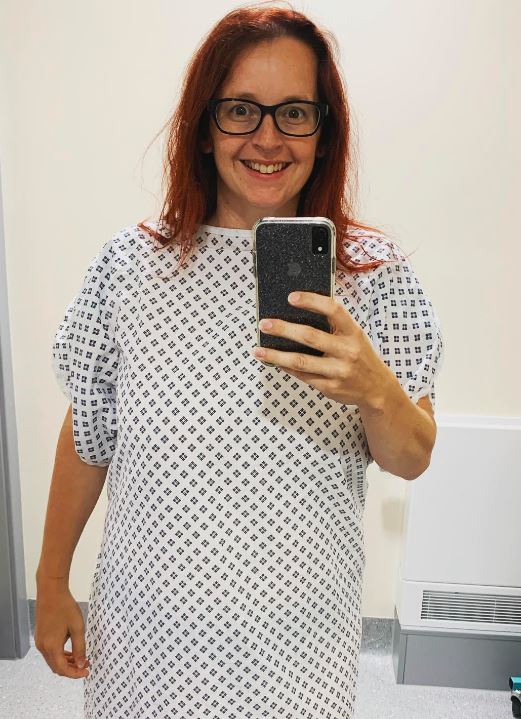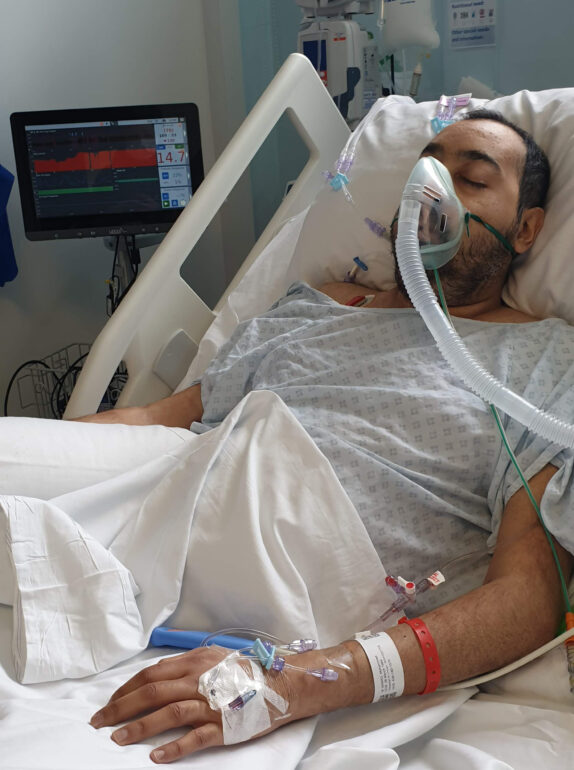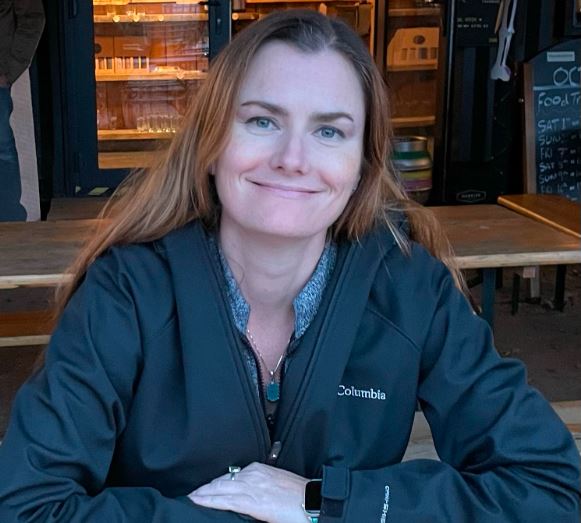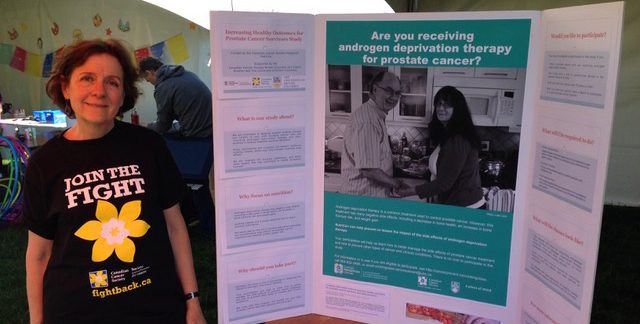Donna Bradbury, survivor of cervical cancer, saw her bad days as something some people would do anything for.
“I lost one person who passed away with cervical cancer and that was really hard and I think on my worst days when I felt so low, I just knew that she would give anything to be where I was,” Bradbury told Humber News.
“When I was having really low days, I kind of had to keep myself in gear and thought you know what? I’m still here, I’m still alive, you know, I’m lucky,” she said.
Bradbury, who lives in the U.K., is now in her third year of remission after much chemotherapy, radiotherapy and brachytherapy for her six centimetre tumor. She posted her journey to remission on social media in part because she didn’t feel there was enough awareness about cervical cancer.

Donna Bradbury took this photo the day after she was told she had cervical cancer in August 2020 when only family and a few friends knew. Photo credit: Donna Bradbury
World Cancer Day has been around since 2000, encouraging awareness for this disease yet this disease has existed for much longer and is still without a cure.
Disability activist and bowel cancer survivor Mohammad Samad said he was in the best shape of his life at 38 when his world was turned upside down with his diagnosis.
“I think people think, ‘Oh, you either have cancer or you’re in remission,’ and there’s so much in between for various people,” Samad said. “I think everyone that I’ve spoken to that was diagnosed with cancer, their life has never been the same since.”
He said he felt a sharp stabbing pain in his lower abdomen and constipation but was told it was stress when he saw the doctor and later irritable bowel syndrome (IBS).

Mohammad Samad in the intensive care unit (ICU) after his colostomy, a surgery to remove the tumour. Photo credit: Noor Samad
After Samad pushed for many blood tests, he was told it could be related to his bowels and that he needed to have a colonoscopy.
“The consultant said I’ll just say it outright we found a tumour and exactly where you were saying that you were having these stabbing pains,” Samad said. “I couldn’t get close to it because I really needed to see it for myself to determine what it was.
“How do I tell my mum who’s just lost her life partner? How do I tell my children who have just been made familiar to the concept of death? How do I tell my partner? And you know, all of these things,” he said.
Carolyn Gotay, an emeritus professor of population and public health at the University of British Columbia (UBC) describes cancer to be a family disease.
She said in some cases, partners of patients are more stressed.
“There are financial issues, childcare issues, employment. I mean it really goes well beyond emotion, which is very significant, but also to aspects of everyday life,” Gotay said.
“Around 1980 was when I was first starting to work in this area, people didn’t even use the word cancer because it was too threatening,” she said. “There were institutions called tumour clinics and they’ve either been cancer centers because they said if people hear the word cancer, they’re going to give up.”

Breast cancer survivor, Trisha MacNeill. Photo credit: Nathaniel Slaney
Trisha MacNeill, breast cancer survivor and whose mother is also a breast cancer survivor, said medical professionals do not tell breast cancer patients all they need to know about it unless they ask, in their attempt to avoid stressing patients out.
“They’re not giving you information for you to make choices that you should be making, and that’s what I kind of find concerning,” MacNeill said.
She said doctors and organizations warn people about cigarettes.
“They don’t mind terrifying the hell out of you on a cigarette pack, but they’re worried about letting you know about your possible situation with breast cancer, like it’s such a weird dichotomy,” she said.
MacNeill said she was 18 or 19 when she was told she was at high risk of getting breast cancer.
“My sister was told at the same time, but again, this is when they were just starting to do genetic testing and stuff like that,” she said.
“So whenever I’d have a lump or something show up in my breast, they give me a mammogram before I was 40. But you know, no one really said much. That was kind of it. You get people kind of worried about it because your mother, but then no one ever said anything,” MacNeill said.
When MacNeill was diagnosed with breast cancer, she had a skin-saving mastectomy because of her mother’s situation.
“I don’t think about breast cancer every day and that’s kind of what I didn’t want to do. My mother was quite traumatized every day talking about breast cancer, so I just didn’t want my life to be breast cancer,” she said.
“The one thing that I would like is generations younger than me to have more agency than I had,” MacNeill said.

